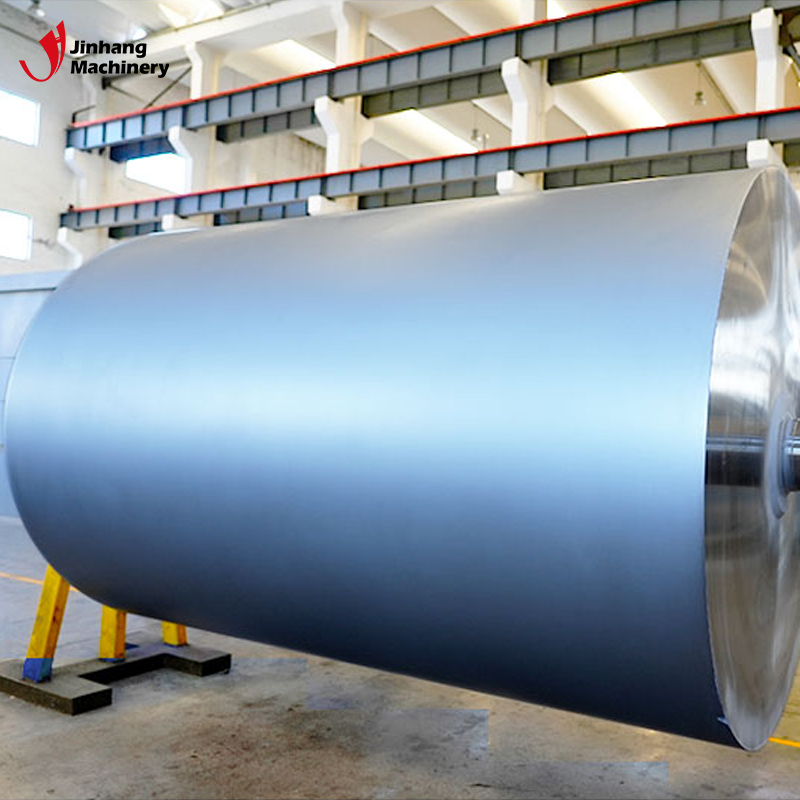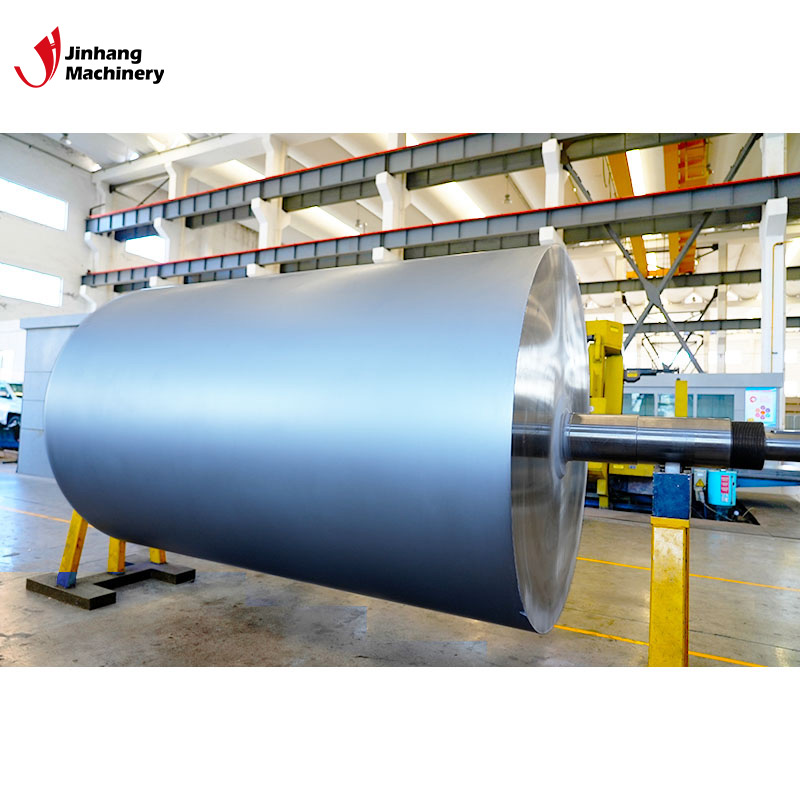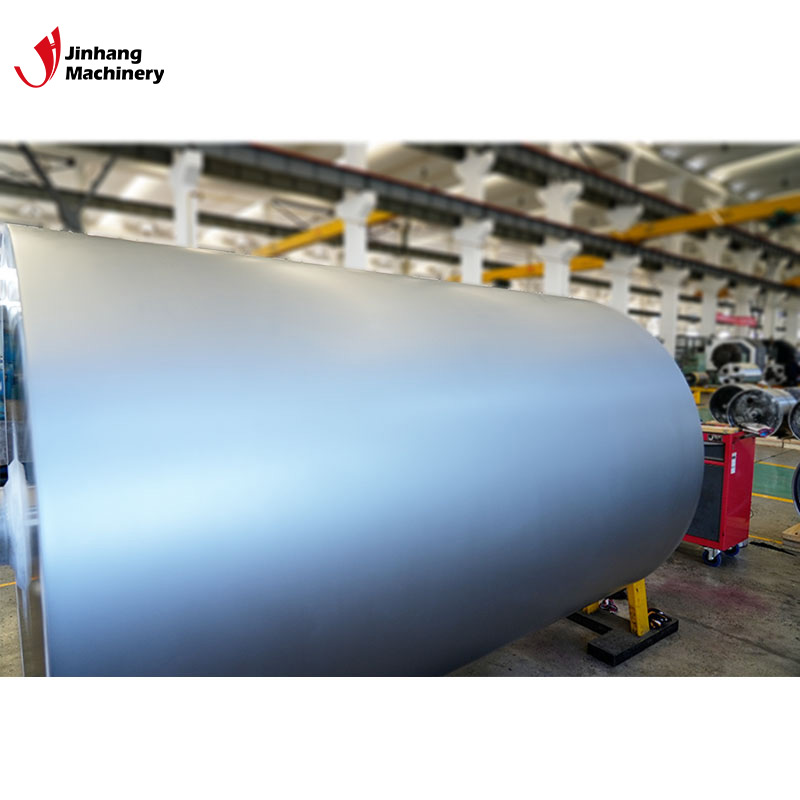What is the purpose of using industrial water quenching rollers?
In modern industrial production, the handling and processing of metal materials often determines the quality and performance of the final product. In these processes, heat treatment, especially quenching process, plays a vital role. Industrial water quenching rollers are important equipment for implementing quenching process. They change the internal structure of materials by rapidly cooling high-temperature metal workpieces, thereby improving their hardness, wear resistance and strength. So, what is the specific purpose of using industrial water quenching rollers? What benefits does it bring? This article will discuss this in detail.

What is the basic working principle of industrial water quenching rollers?
Before we delve into the purpose and benefits of industrial water quenching rollers, it is necessary to understand their basic working principle. Water quenching rollers are mainly used to quickly cool metal workpieces that have been heated. Its basic structure includes rollers, cooling water distribution system and conveying device. The metal workpiece is heated to the austenite phase region (usually between 800°C and 900°C) in a high temperature environment, and then cooled by water quenching rollers to quickly cool it down.
This rapid cooling process will form martensite or bainite structures inside the workpiece. These structures have high hardness and strength, making the metal material show excellent mechanical properties in subsequent use. Water quenching rollers can achieve precise control of the internal structure of the material by controlling the cooling rate, the flow rate of cooling water and the conveying speed of the workpiece.
What is the purpose of using industrial water quenching rollers?
1. Improve the hardness of metal materials
The hardness of metal materials is an important indicator of their resistance to deformation and wear. In many applications, such as automobile manufacturing, tool manufacturing and mechanical parts production, the hardness of the material is directly related to the service life and performance of the product. One of the primary purposes of using industrial water quenching rollers is to significantly improve the hardness of metal materials through quenching treatment.
When the metal material is heated to the austenite zone, it will form a high-hardness martensite structure inside it after rapid cooling by the water quenching roller. Compared with other cooling methods, the water quenching process has a faster cooling rate and can effectively inhibit the formation of pearlite, thereby ensuring the formation of martensite. The formation of this structure is the key to improving the hardness of the material.
2. Enhance the wear resistance and fatigue resistance of materials
In mechanical processing and equipment manufacturing, metal parts are often exposed to high friction and high stress environments, which makes wear resistance and fatigue resistance become key requirements. Using industrial water quenching rollers for quenching can significantly enhance the wear resistance and fatigue resistance of materials, thereby extending the service life of products.
Wear resistance refers to the ability of materials to resist wear under friction conditions, while fatigue resistance refers to the ability of materials to resist fatigue damage under repeated stress. The martensitic structure formed by rapid cooling is not only high in hardness, but also has good wear resistance and fatigue resistance. This enables the metal materials after water quenching to maintain stable performance for a long time in high-strength and high-stress environments.
3. Improve the mechanical strength of materials
Mechanical strength is a measure of the ability of metal materials to resist damage under external forces. Another important purpose of using industrial water quenching rollers is to improve the mechanical strength of metal materials through the quenching process. This is essential for industrial parts that need to withstand high loads and high stresses.
Rapid cooling during quenching triggers changes in the internal structure of the material, forming a microstructure with high strength. This structure improves the strength of the material while also improving its impact resistance, so that the quenched metal can better cope with various complex working environments.
4. Reduce the internal stress of the material
In the process of metal processing, the generation of internal stress is inevitable, especially during heating and cooling. If the internal stress is too large, it may cause deformation, cracking or even failure of the material. Another purpose of using industrial water quenching rollers is to reduce the internal stress of the material by controlling the cooling process to ensure the dimensional stability and structural integrity of the finished product.
The design and operation of the water quenching roller can achieve uniform cooling, thereby effectively reducing the temperature gradient during the cooling process and reducing the accumulation of internal stress. This method can significantly improve the dimensional accuracy and stability of the quenched workpiece and reduce the risk of deformation and cracking.

What are the benefits of industrial water quenching rollers?
1. Improve production efficiency
As a highly automated equipment, industrial water quenching rollers can significantly improve production efficiency. Traditional quenching methods often require manual operation, which is inefficient and difficult to guarantee quality. Water quenching rollers can achieve automated and continuous operation, reduce manual intervention, and improve the overall efficiency of the production line.
In modern industrial production, improved production efficiency means lower production costs and higher market competitiveness. The use of water quenching rollers can reduce production cycles and increase the output rate of production lines, which is particularly beneficial for large-scale production.
2. Ensure the stability of product quality
The quenching process has an important impact on the final performance of metal materials. Industrial water quenching rollers can effectively ensure the consistency and stability of quenching quality by precisely controlling the cooling rate and process parameters. Compared with traditional manual operations, water quenching rollers can avoid the impact of human factors on product quality to a greater extent, thereby ensuring the high quality of products.
For industries that have strict requirements on product quality, such as automotive manufacturing, aerospace and high-end machining, the stability and reliability of industrial water quenching rollers are crucial. It can not only improve product performance, but also reduce defective rates and reduce production costs.
3. Reduce energy consumption and environmental pressure
With the increase in environmental protection requirements and the rise in energy costs, energy consumption and environmental impact in industrial production have become the focus of enterprises. Industrial water quenching rollers have significant advantages in energy conservation and emission reduction. Compared with the traditional oil quenching process, the water quenching process is more environmentally friendly. The cooling medium is clean water, which does not require a large amount of oil resources, reducing energy consumption and environmental pollution.
In addition, the water quenching roller can realize the recycling of water during use, further reducing the consumption of water resources in production. This not only meets the requirements of sustainable development, but also saves energy expenses for enterprises.
4. Reduce deformation and cracking of workpieces
During the quenching process, the cooling speed of the workpiece is too fast or uneven, which may cause deformation or cracking, affecting the quality and performance of the finished product. The water quenching roller effectively avoids this problem through a uniform and controllable cooling process. The design of the roller equipment makes the workpiece evenly stressed during the cooling process, reducing the stress concentration caused by the temperature gradient and reducing the risk of deformation and cracking.
This advantage makes the water quenching roller the preferred equipment in many industries with high requirements for dimensional accuracy and structural integrity. Whether it is manufacturing parts with complex shapes or processing large workpieces, water quenching rollers can provide reliable quality assurance.
5. Enhance the market competitiveness of enterprises
By using industrial water quenching rollers, enterprises can gain advantages in quality, efficiency, cost, etc., thereby enhancing market competitiveness. High-quality quenching products can not only meet customer needs, but also enhance the company's brand image and market share. In the fiercely competitive market environment, the use of water-quenched rollers has won more business opportunities and development space for enterprises.

JH Machinery offers premium-quality industrial rolls at competitive prices, making us a top supplier in China. With ISO9001 certification and advanced equipment, we manufacture a variety of rolls, including mirror rolls, cooling rolls, and ceramic-coated rolls. Since 2001, we've provided customized solutions for industries like metallurgy, automotive, and lithium battery production. Take advantage of our wholesale pricing and expert support to enhance your production process.
